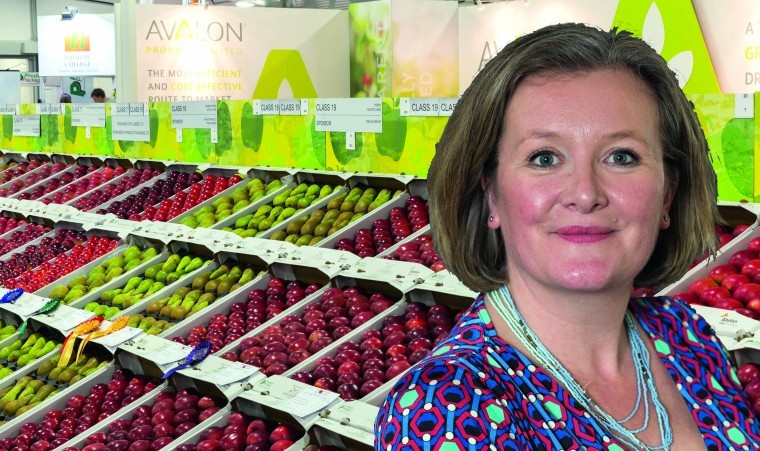Readers will be aware of the consultations on food, farming and environment that are currently running to build a long-term food and farming strategy for the UK. It’s a complicated area that isn’t just rooted in what we do in production but is rooted in society, in what is ‘normal food’ for people, how food is valued – in monetary terms, social norms and also in its health values.
The Government’s Eatwell plate (above) suggests that more than a third of UK daily diets should comprise fruit and vegetables and yet currently less than a quarter of diets are taken from this source; more than 75% of the national diet isn’t fruit and vegetables! A UK debate on the status of the horticultural industry and its potential to meet a recommended increase in consumption is long overdue.
As an industry, farming in the UK has every reason to feel beleaguered. It finds itself beset by rapid policy change that impacts daily on how food can be produced, support structure changes, weather impacts on productivity, immigration policies that initially appear to be directly disadvantaging the whole food sector and the impacts of a global pandemic on costs, delivery, inputs and the market place (including the impacts of even more price deflation). Margins are less than wafer thin, our ability to be able to invest to reduce costs is evaporating and the cost of labour through an average increase each year of 2.2% on the living wage means that we are going to struggle unless there are significant changes. This year alone, the cost of production has been increased by 5% with the joint impact of Covid-19 and living wage increases.
The impact of Covid-19 on our wider population means that more families will be in poverty (one in five were living within the Government’s defined terms of poverty prior to March this year). Lord Krebs, speaking at the Food Foundation event this week, spoke about the work of the Select Committee formed to examine the inequality of public health and the lack of sustainability in our food system. After considering written and oral evidence, a set of 50 outcome-focussed recommendations were made, including statements that will be fed in to the food strategy elements that face primary production (future farming policy) and also national strategies to amend the benefits system.
One example was that the Eatwell plate needs to be costed; universal credit doesn’t take into consideration the cost of a diet beneficial to long-term health. There are also statements and recommendations around the restriction of planning permissions to reduce the density of fast food outlets, to prevent high streets that offer a mile of high-calorie, low-quality fast food outlets but nowhere to buy produce. Food deserts are locations where there is no access to produce, no shops close to housing that will sell healthy food, only processed.
There are two key statements for food production within the Select Committee Report Hungry for Change: Fixing the Failures in Food. They are:
- The Agriculture Bill should include public health as a public good. The Environmental Land Management Scheme needs clear and consistent measurement criteria linked to payments.
- The National Food Strategy should include a plan to increase demand for, and consumption of, vegetables.
On trade: Food imports should match UK environmental and animal welfare standards.
Neil Parish spoke at the Rural Policy Group webinar last week about the need for greater food security, suggesting that production needs support to be more efficient, to have the ability to diverge from the European position where agritech is generally poor. He said the Government needed to be aware that people need competitively produced and priced food that is produced at home.
We must be able to justify this position and he is working to deliver an impartial food commission investigation into food and farming; he is actively seeking members and a chair who understands farming and how trade works. The commission will need to know what they are talking about and to not just be ‘yes men’. Attendees at the webinar were overwhelming in their support of the commission, but with the caveat that providing support for welfare standards and ensuring no unfair competition from imports would need clear policy outcomes and proper safeguards.
Watch this space, as everyone is going to be asked for information for the commission and we must all respond and make an overwhelming case for the support of British food production.




